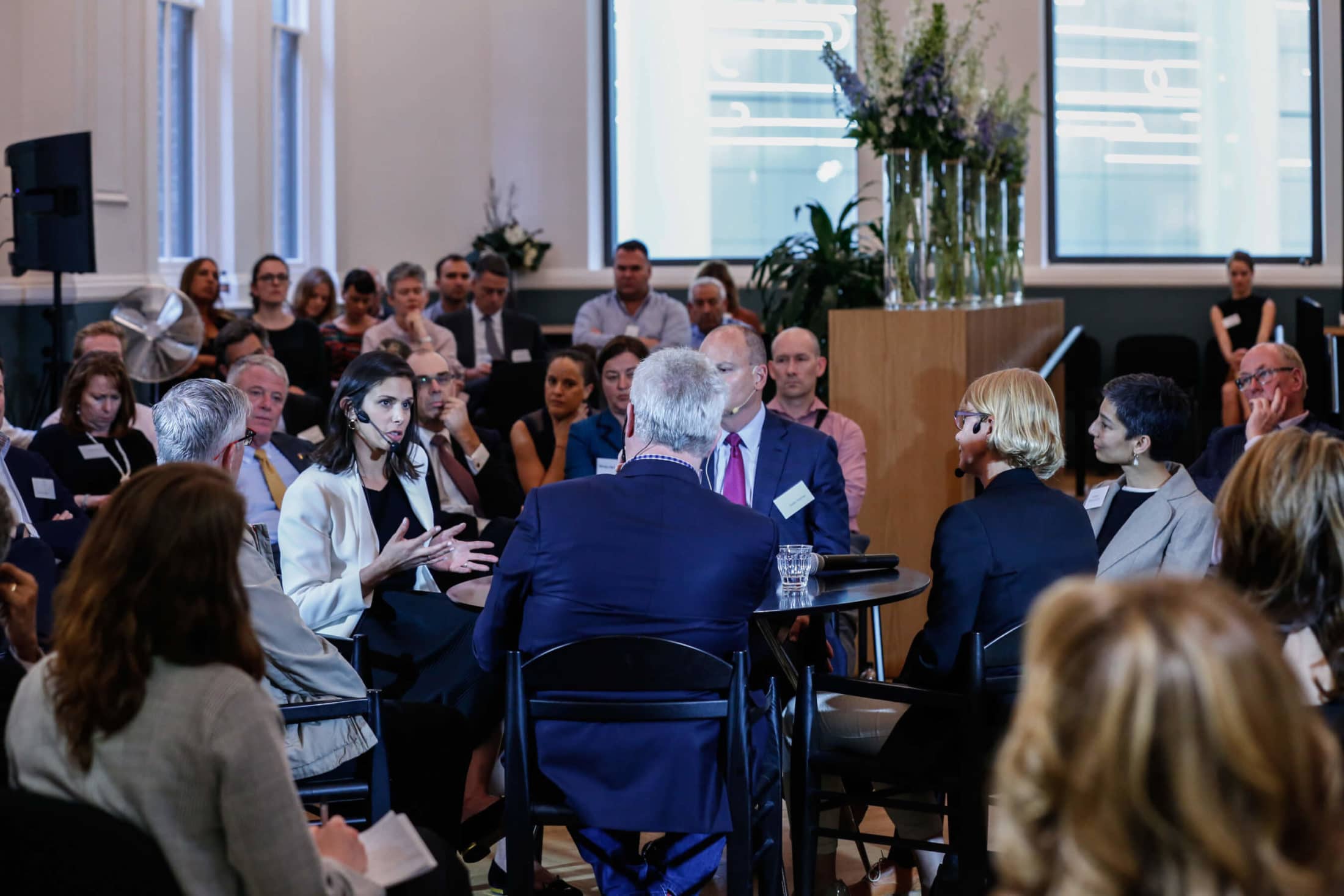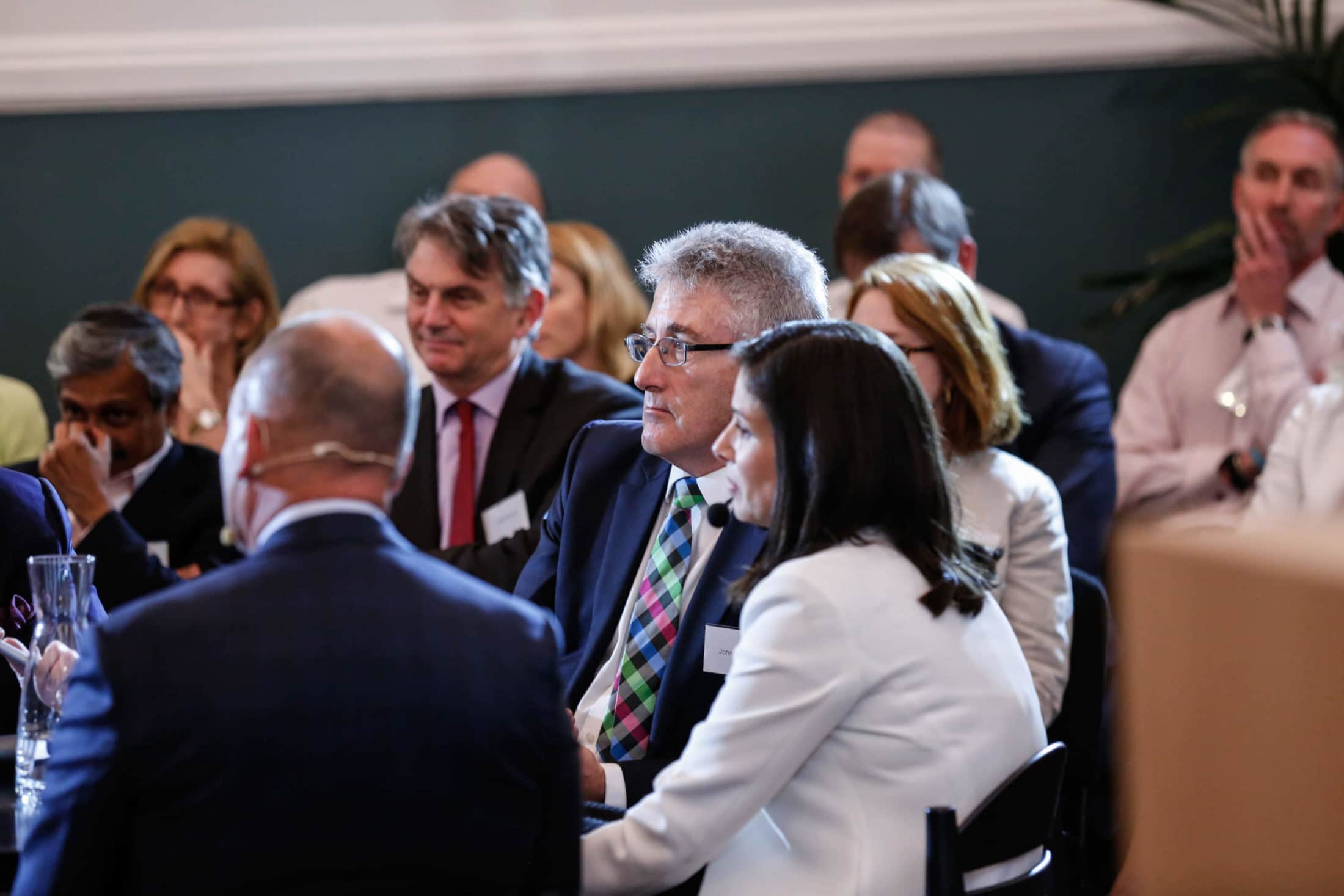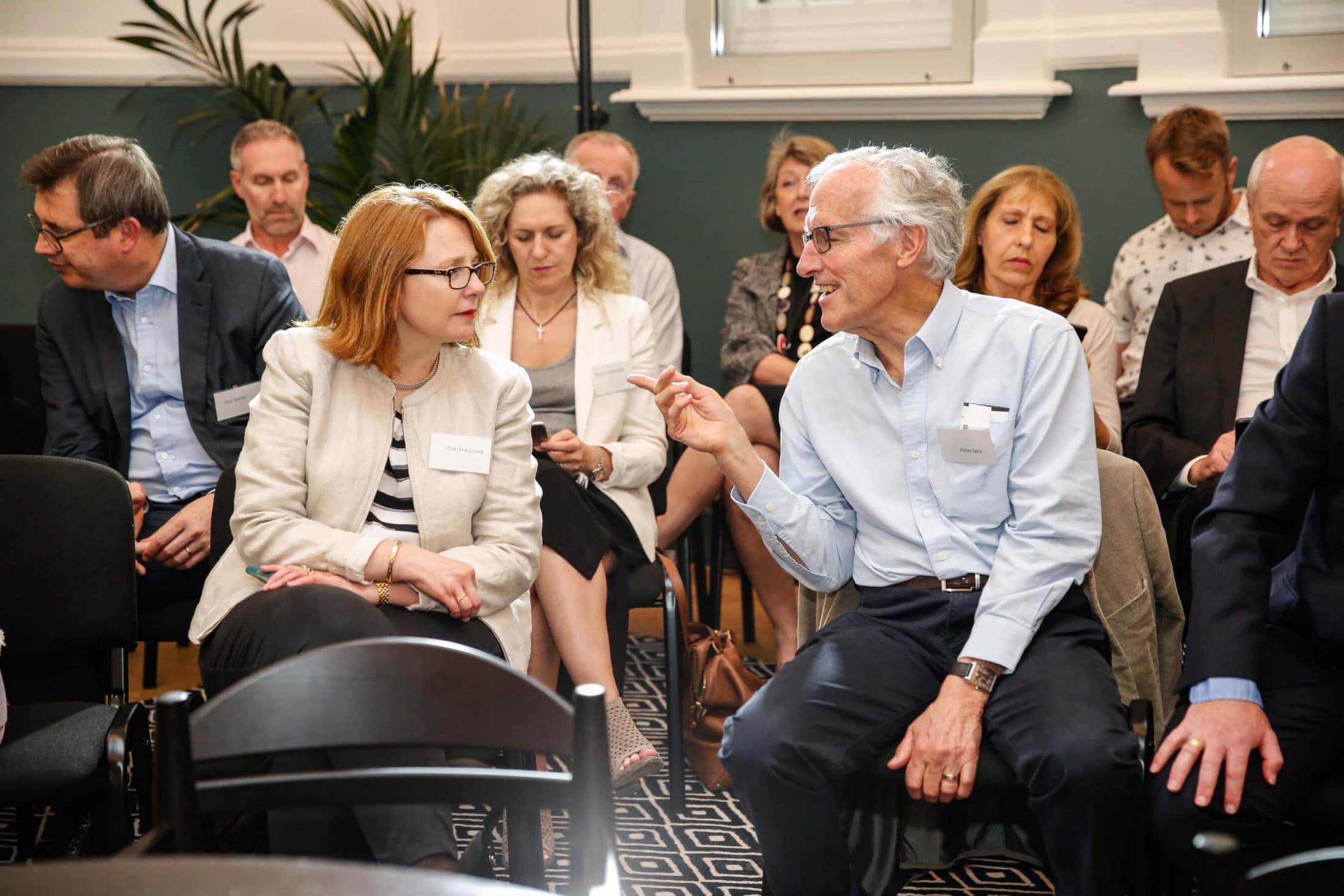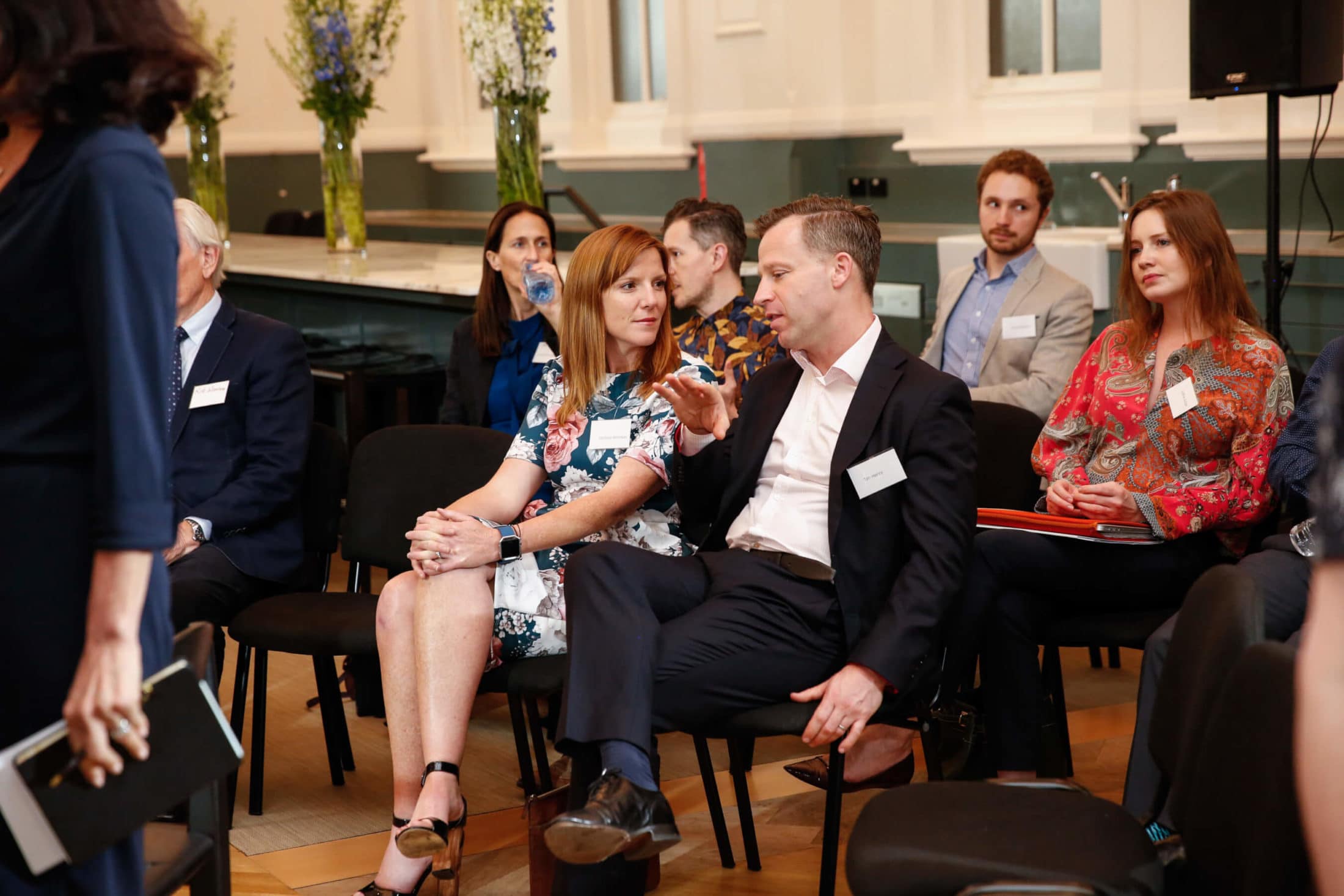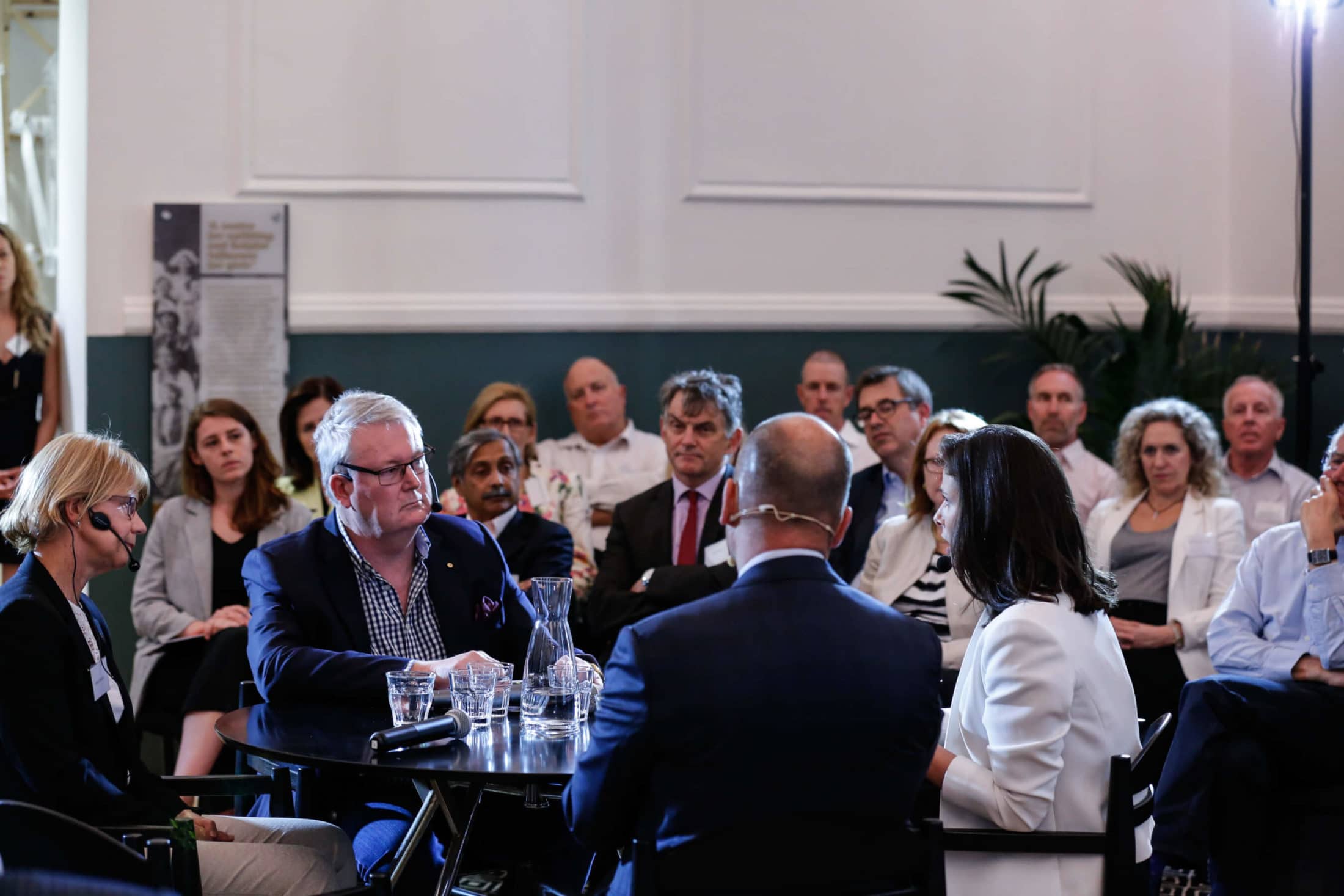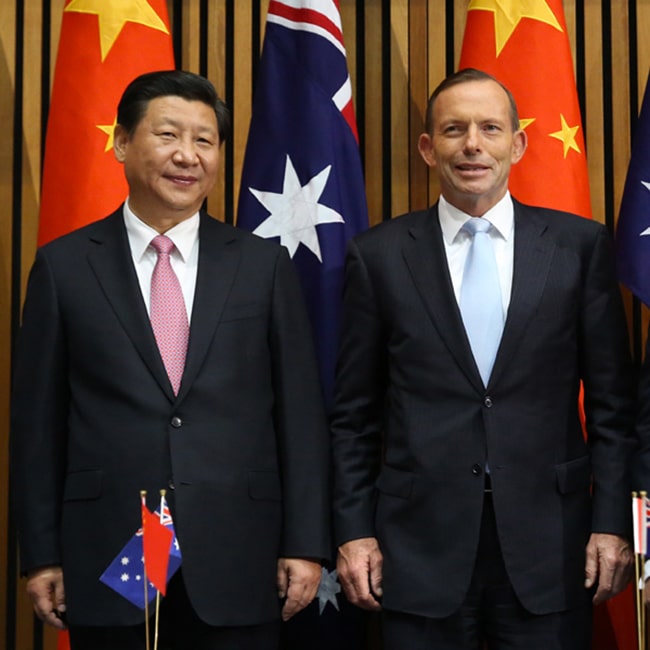Feel the burn: AustralianSuper CEO applies a blowtorch to encourage progress

Feel the burn: AustralianSuper CEO applies a blowtorch to encourage progress
Opinion + AnalysisBusiness + Leadership
BY The Ethics Centre 1 JAN 2018
It would be nice to think business is stamping out bad behaviour because it is the right thing to do. But that rarely is the case.
The growing pressure from regulators and the community mean employers have little choice but to clean up their acts, says Ian Silk, the CEO of Australia’s biggest industry superannuation fund.
He’s no stranger to a bit of pressure, adept at applying the “blowtorch” to hasten positive change. With $125 billion in assets, AustralianSuper was an activist shareholder in voting against the remuneration report of the Commonwealth Bank of Australia last year.
“The more controversial the issue, the more vociferous are the people who have strong views either way and, sometimes, you are in the middle of it and you have to make a judgement as to which way you will go.”
Previously, Silk had spoken out about the need for bonuses to be awarded for exceptional results, not just for performing the required tasks and, in the case of CBA, was arguing for more rigour around the bonus process.
The fund has also pledged to vote against the appointment of male non-executive directors where there are no women on the boards.
In an interview with The Ethics Centre, Silk says AustralianSuper’s high profile brings an obligation to speak out on “certain issues”.
“The more controversial the issue, the more vociferous are the people who have strong views either way and, sometimes, you are in the middle of it and you have to make a judgement as to which way you will go”, he says.
Ethics in business is a hot topic, particularly in the financial services sector.
“[It is], in a very large measure, a response to the egregious behaviour that is now so well publicised and readily-known by the public”, says Silk.
“Everybody knows unethical behaviour when they see it and I think there is a move back to appropriate norms. I think there is a recognition that much of the bad behaviour in the financial services sector is wrong.”
Silk says it is difficult to discern if this revitalised interest in ethics is deeply-felt, or whether it is a protective measure to avoid getting caught and penalised
“But I think there is a slow improvement in behaviour, much of it regulator and government led, but much of it community-led, consumer-led, some industry associations take a strong position on it.”
In terms of standards in his own organisation, Silk says he had been confident that the culture and behaviours at AustralianSuper would stand up to scrutiny. This is partly because, as a member-organisation, its sole purpose is to act in the interest of members and this provides a de facto ethical framework, he says.
However, earlier this year, he decided to get a second opinion. The Ethics Centre was engaged to undertake a “culture audit” to test whether the fund’s policies, procedures and practices were aligned with its purpose, values and principles.
“In my darkest moments, I just wondered if we had all drunk the Kool-Aid”, he says.
The results were gratifyingly positive and were affirmation that AustralianSuper and its 550 staff are on the right track, says Silk, who has led the fund since it was founded in 2006.
However, The Ethics Centre also found some areas for improvement, including a culture that could be “conflict averse”.
“We weren’t as robust as we might be. There was a tendency to avoid conflict in certain parts of the organisation, so we could introduce a bit more aggression into the organisation – aggression in a positive sense”, he says.
“People who are rude to others are counselled and abusive language or behaviour is not tolerated and could be regarded as a sacking offence.”
“Those areas where improvement opportunities were identified, we have consciously thought that we want to do something about that, we want to lift the standard in the organisation … so we have an action plan, we have done all the things that you might do with a business plan, we have identified all the particular areas, we have assigned responsibility to people, we are going to check in periodically to make sure progress has occurred.
“We haven’t just used it as a soft survey.”
It is too early to see much in terms of a change in culture since The Ethics Centre report was completed, but Silk says some progress has been noticed, such as more robust questioning in meetings.
“We are getting better outcomes as a result”, he says.
Silk’s commitment to respectful behaviours is well known. According to a recent report in the Australian Financial Review, every recruit to the organisation gets a one-and-a-half hour briefing from Silk on the fund’s four values.
People who are rude to others are counselled and abusive language or behaviour is not tolerated and could be regarded as a sacking offence.
The Ethics Alliance sat down for a further conversation with Ian. He shared his insights on the importance of discussing ethics with your network, why organisations always need to work toward good ends, and why leaders can’t just talk the talk. They need to walk the walk.

This article was originally written for The Ethics Alliance. Find out more about this corporate membership program. Already a member? Log in to the membership portal for more content and tools here.
Ethics in your inbox.
Get the latest inspiration, intelligence, events & more.
By signing up you agree to our privacy policy
You might be interested in…
Opinion + Analysis
Business + Leadership
Is there such a thing as ethical investing?
Opinion + Analysis
Business + Leadership, Science + Technology
Is technology destroying your workplace culture?
Opinion + Analysis
Business + Leadership, Politics + Human Rights
Why fairness is integral to tax policy
Opinion + Analysis
Business + Leadership, Politics + Human Rights
Could a virus cure our politics?
BY The Ethics Centre
The Ethics Centre is a not-for-profit organisation developing innovative programs, services and experiences, designed to bring ethics to the centre of professional and personal life.
Managing corporate culture

It’s not uncommon these days to hear regulators sounding warnings about culture.
They point out that it’s a crucial role of boards to determine the purpose, values and principles of the company they govern, whilst the CEO and senior management have responsibility for implementing the desired culture. Personnel in human resources, ethics, compliance, and risk functions all have a role to play in embedding values and ethics.
Culture, we hear, has an important role to play in risk management and risk appetite. Weak risk cultures are often the root cause of the most spectacular governance failures. Firms lacking good corporate culture will fail investors and stakeholders.
“Trust, like beauty, is in the eye of the beholder,” says John Price, Commissioner of the Australian Securities and Investment Commission (ASIC). “If consumers don’t like the way a firm has behaved, they can take their business elsewhere and tell everyone about it through the wonders of social media. Loss of reputation due to poor conduct destroys value in a firm. Even more challenging is that poor conduct may be technically within the law, but still have negative impact on a firm’s reputation.
“The possible loss of trust and confidence is a key business risk. If the conduct of a firm genuinely reflects ‘doing the right thing,’ this mitigates conduct risk and will be rewarded with longevity, customer loyalty, and a sustainable business.”
All very well, we hear you say: but how does a company manage culture? What does good culture even look like? By what standard do we measure it or assess it? How do you shift from the culture you’ve got today to the culture you aspire to for the future?
The Ethics Centre has been exploring this subject for many years, developing frameworks and methodologies for measuring and improving culture along the way. We’ve played a significant advocacy role as well, arguing for boards to accept responsibility for setting and maintaining the culture standard in the organisations they govern.
The Ethics Centre recently partnered with the Governance Institute, the Institute of Internal Auditors and Chartered Accountants Australia to produce Managing Culture – A Good Practice Guide. This publication sets out to define culture and explores challenges in identifying, monitoring and driving culture, including organisational change programs. The guide also explores the importance of embedding culture and the nature of the board’s role in evaluating and overseeing culture.
Research has shown that companies that have a good culture perform better than companies that do not. The Guide outlines how each group in an organisation can contribute to a good culture, the first step of which is to create an ethical framework that provides guidance on decisions and an appropriate ‘tone from the top’.
While having an integrated governance and risk management framework is important, unless an organisation establishes a culture that promotes risk awareness into everything it does, it is unlikely to achieve its objectives. Governance and risk management must be at the core of an organisation’s culture.
Ethics in your inbox.
Get the latest inspiration, intelligence, events & more.
By signing up you agree to our privacy policy
You might be interested in…
Opinion + Analysis
Business + Leadership
Moral injury is a new test for employers
Explainer
Business + Leadership, Politics + Human Rights
Ethics Explainer: Universal Basic Income
Opinion + Analysis
Business + Leadership
Has passivity contributed to the rise of corrupt lawyers?
Opinion + Analysis
Politics + Human Rights, Business + Leadership
Political promises and the problem of ‘dirty hands’
BY The Ethics Centre
The Ethics Centre is a not-for-profit organisation developing innovative programs, services and experiences, designed to bring ethics to the centre of professional and personal life.
The Ethics Alliance: Why now?

After almost thirty years of existence, The Ethics Centre has chosen this particular time to establish The Ethics Alliance. Why the Alliance, and why now?
I’ve heard it suggested that the Alliance is a necessary response to a period of history in which our trust in institutions – including banks, governments and the media – has dropped to a new low point. Some may see it as an opportunity for organisations to restore their battered reputations.
Others may see the Alliance a little more generously, as a community of like-minded organisations with a common commitment to good business practice. A collaborative effort to raise the standards of good business behaviour. A source of insights and tools that will enable better culture to emerge.
While low levels of trust certainly form part of the context within which The Ethics Alliance is emerging, we believe the root cause of our current malaise is something far more significant: the fact that we are on the edge of a transformation that will change our society in ways every bit as profound as those caused by the First Industrial Revolution.
The Ethics Alliance has a clear function. It is a mechanism for developing collective insight and practical measures that will support its members to manage this historic transition. The Alliance will enable companies – and the leaders who work in them – to harness change for the benefit of employees, customers and shareholders alike. The ultimate beneficiary will be the society in which we all live.
We are already seeing clues as to the general shape of the coming changes. Many of these are the product of scientific and technological innovation. Artificial Intelligence and robotics (including nano-fabrication by 3D printers) will displace vast numbers of people from employment. New jobs may be created – but there are very few credible plans in place to ensure the necessary transition will be just or orderly.
The upheaval in employment will be accompanied by a revolution in medicine. Gene editing (using the ‘cut & paste’ functions of CRISPR), pharmaco-genomics, the use of stem cells to regenerate organs and a myriad of other developments will see a startling increase in the lifespan of those who can afford these therapies.
The resulting seismic shift in demography will challenge all of our assumptions about what makes for a worthwhile life, about the status of long-established social institutions, about sources of value and so on. What kind of economy will be needed to support such a society? What is the role of the market, of government, of civil society?
These questions will create new practical challenges within every workplace. If one of the key responsibilities of business leaders is to anticipate and plan for the emerging future and creating organisations which are fit for purpose, then there is much to discuss. Scientists, economists, engineers and lawyers can help us to know what we could do in response to issues of this kind. But only ethics can help us decide what we should do.
We believe business, professional and government organisations not only have a responsibility to help meet the challenges of the future – they also have the capacity to do so.
These matters are not just for governments to solve. Few, if any, organisations will be able to address such ‘civilisational’ challenges alone. Aggregating the resources, energy and insights of members of The Ethics Alliance will achieve outcomes that individual organisations could never achieve on their own.
The Ethics Alliance will also provide practical tools to its members – building their capacity to make better decisions – even in conditions of uncertainty. And it will support innovation. The Ethics Alliance has been designed as a safe place for testing the boundaries of what might be possible.
Society may have lost a little of its faith in government and business lately, and that’s something we should all be concerned about. We believe business, professional and government organisations not only have a responsibility to help meet the challenges of the future – they also have the capacity to do so.
These same organisations cannot afford to ignore these issues or mismanage their response. This is not just about managing risk. It is also about learning how to harvest the dividends of progress without compromising the future.
In that sense, The Ethics Alliance is not so much a response, as a product of the times in which we live.

This article was originally written for The Ethics Alliance. Find out more about this corporate membership program. Already a member? Log in to the membership portal for more content and tools here.
Ethics in your inbox.
Get the latest inspiration, intelligence, events & more.
By signing up you agree to our privacy policy
You might be interested in…
Opinion + Analysis
Business + Leadership
Let the sunshine in: The pitfalls of radical transparency
Opinion + Analysis
Business + Leadership, Health + Wellbeing, Science + Technology
Can robots solve our aged care crisis?
Opinion + Analysis
Business + Leadership, Relationships
Moving work online
Opinion + Analysis
Business + Leadership, Relationships, Science + Technology, Society + Culture
Who does work make you? Severance and the etiquette of labour
BY Simon Longstaff
Simon Longstaff began his working life on Groote Eylandt in the Northern Territory of Australia. He is proud of his kinship ties to the Anindilyakwa people. After a period studying law in Sydney and teaching in Tasmania, he pursued postgraduate studies as a Member of Magdalene College, Cambridge. In 1991, Simon commenced his work as the first Executive Director of The Ethics Centre. In 2013, he was made an officer of the Order of Australia (AO) for “distinguished service to the community through the promotion of ethical standards in governance and business, to improving corporate responsibility, and to philosophy.” Simon is an Adjunct Professor of the Australian Graduate School of Management at UNSW, a Fellow of CPA Australia, the Royal Society of NSW and the Australian Risk Policy Institute.
Measuring culture and radical transparency

Measuring culture and radical transparency
Opinion + AnalysisBusiness + Leadership
BY The Ethics Centre 24 NOV 2017
The Ethics Centre is often asked whether it’s possible to “measure” or evaluate organisational culture. Executives and Directors are now alive to the considerable responsibility they bear for the workplaces they preside over – and this has led to a growing demand for robust and credible measurement tools.
Using a methodology developed over 25 years, The Ethics Centre’s Everest process is a forensic review into a company’s ethical culture. It’s based on a simple proposition: that good culture can be measured. Global research shows a healthy culture is essential to sustainable, long-term performance; it enables innovation and builds trust between staff, clients, and customers. Conversely, poor culture leads to bad decisions and an erosion of trust and credibility. The result, inevitably, is disengagement, cynicism, and loss of value.
In the face of challenging conditions, many leaders are tempted to focus their efforts on compliance to prevent ‘bad’ behaviour. But this over-reliance on regulation and surveillance can be counterproductive. Not only can it restrict growth of a positive ethical environment that enables people to innovate and act with a shared purpose and direction, it also doesn’t work. Failures persist. A strong ethical culture is critical to managing risk and building a foundation that will support long term value and performance.
We’ve employed Everest to evaluate the culture of numerous, very different, organisations. We’ve used it on one of Australia’s “big four” banks and a leading superannuation fund. We’ve measured the culture of universities, insurance companies, and leading sports organisations including the Australian Rugby Union, Cricket Australia, and the Australian Olympic Committee.
In carrying out the process both in Australia and abroad, we look at the misalliances between what a company says it stands for, and what occurs in practice. Using this premise, we check how organisations live up to the standards they set for themselves through an audit of systems, policies, procedures, and practices. We undertake extensive qualitative and quantitative research to determine how employees and key stakeholders view the organisation. Out of this process comes a set of powerful insights into the degree of alignment between purpose and practice. We identify the gaps.
Once we’ve made sense of the current state of an organisation, we’re in a position to ask our clients some tough questions about the kind of company they’d like to be. We present clients with a Future State Framework that maps the pathway from the present to the future – asking them to imagine the pinnacle of what’s possible for their organisation. In doing this, we examine five domains:
Culture: The operating system through which people create meaning, purpose, and belonging.
Ecosystem: Organisations are complex, interconnected, and interdependent. They sustain, and are sustained, through relationships, mutual dependencies, and the value they bring to the whole.
Leadership: Providing the guidance, direction, and consistency that allows an organisation to respond to the challenges of uncertainty and change.
Readiness: The ability of an organisation to anticipate and respond to uncertainty. The ability to pre-empt a possible future before it arrives fully formed.
Legacy: The future’s perspective on the present. The map we leave behind for others.
The nature of Everest, particularly when coupled with the independence of The Ethics Centre, is that we can confront leaders with issues that have not previously been articulated, recognised, or challenged. And we do this in a way that lessens defensiveness and focuses on building on the goodwill contained in the existing culture of the organisation.
We’re proud that our process has provided leaders across business and government with the expertise to shine a spotlight on current practices and make choices about the culture and style of organisation they wish to cultivate in the future.
One final note: our Everest reports are delivered to our clients on the understanding that everything contained therein is strictly confidential. What a company does with the report is entirely up to them. None had ever been made public until we worked for the Australian Olympic Committee in 2017.
Facing a media storm over their culture, the AOC took the brave step of releasing the report, in its entirety, to the public. Thanks to this act of radical transparency, we’re able to share it with you here.
Ethics in your inbox.
Get the latest inspiration, intelligence, events & more.
By signing up you agree to our privacy policy
You might be interested in…
Opinion + Analysis
Business + Leadership
The invisible middle: why middle managers aren’t represented
Opinion + Analysis
Business + Leadership, Politics + Human Rights
Democracy is still the least-worst option we have
WATCH
Business + Leadership, Climate + Environment, Science + Technology
How to build good technology
Opinion + Analysis
Business + Leadership, Politics + Human Rights
Character and conflict: should Tony Abbott be advising the UK on trade? We asked some ethicists
BY The Ethics Centre
The Ethics Centre is a not-for-profit organisation developing innovative programs, services and experiences, designed to bring ethics to the centre of professional and personal life.
A radical act of transparency

A radical act of transparency
Opinion + AnalysisBusiness + Leadership
BY The Ethics Centre 13 NOV 2017
The Australian Olympic Committee had been through a six month media firestorm by the time its new CEO, Matt Carroll, got his hands on a confronting review of the organisation’s culture.
The AOC had been battered by a succession of negative events. Its former CEO, Fiona de Jong, had resigned in a blaze of headlines while their longstanding president John Coates had fought off a bruising challenge to his leadership in a publicised election campaign.
Some of its most senior executives received allegations of bullying and poor behaviour. Part of its 36 staff complained the AOC was the most dysfunctional place they’d ever worked. There was even an ugly rift between the AOC and the Australian Sports Commission, which funds high performance sports.
What’s more, the medal tally from athletes in the most recent summer Olympic Games in Rio had been disappointing – our worst in 15 years.
Even with Carroll in place as the new “cleanskin” CEO, the damaging headlines were showing no sign of abating. With the results of the 64-page cultural review in his hands, Carroll knew the bad news would keep leaking out.
So he and Coates decided to publish the review’s findings and its 17 recommendations on its website and release them to the media – effectively putting the organisation’s “dirty laundry” on the table for all to see.
“Why? We knew we were going to get criticised, and we did. We knew we were going to get held up and ridiculed, and we did”, says Carroll today.
“We copped a bit of a battering in the media for a week, but I know that the national sporting federations had a great deal of respect for us doing it.”
“But there was one question I couldn’t have answered if we hadn’t done it and it was: ‘What are you hiding?’ And that would have dragged us backwards.”
They concluded the only way to move on and put their troubles behind them was to engage in an act of radical transparency.
A ‘brave’ decision
The independent review, conducted over two months by The Ethics Centre, was not initially intended to be a public document. But when the report finally landed in the AOC boardroom – a frank appraisal of all that was wrong with the organisation, and what they needed to do to fix it – the decision was quickly made to go public.
“The transparency involved in publishing the report is very good for my purposes in changing the organisation because it is out there”, Carroll says.
“There can be no pushback … It sets a standard that this is the way we are going to operate.”
The business community was agog; a corporate leader made a wary comment telling Carroll the move was “brave”.
But while staff and the sporting federations were generally appreciative of the review and the courageous decision to go public with the findings, it was not a painless process.
“It did have an effect on some of the senior managers because there was this inherent criticism of the leadership team – some of whom are new – but they have shouldered that”, says Carroll.
“For the leadership team, there was this feeling they had all been tarred with the same brush and some of them took that quite hard. We have all been tarred a bit, but we have recognised the issues, recognised the problems, we have agreed that we need to make change.”
Coates, however, was accused of sidestepping responsibility for the poor organisational culture when he told a news conference, “The only criticism of me, personally, has been my acrimonious relationship with some stakeholders, particularly [Australian Sports Commission chair] John Wylie, and that has been put in context.”
Extending transparency
One of the findings of the AOC culture review was a lack of transparency around key decisions – like how individual sports are funded, how staff members are selected to work on site at each Olympic Games. This lack of transparency had led to an atmosphere of suspicion and allegations of favouritism.
Carroll intends to usher in a new era of transparency to dispel any suggestion of favouritism.
“Equally, performance is expected. Yes, we can structure everything and will make sure everyone knows their roles and responsibilities. There is a process, and it is transparent, but that doesn’t mean everybody is a winner.
“We are in the business of high performance sport and our athletes expect the same [level of performance] from our organisation. If you don’t perform in your role, yes, you probably won’t get to go to the Games – but you will know why.
“I am always of the view that you tell the truth, otherwise it comes around to bite you anyway.”
Carroll says this level of openness does not mean that everyone gets a say. “Transparent decision making doesn’t mean you are standing out there asking everyone’s opinion.
“But there is a process where everyone knows how it works and they know what the expectations are and, therefore, they can measure themselves.”
A culture of stress
“One reason that it was always so frantic was that people made it frantic.”
Having come into his role with a 20 year career in sports management, Carroll says he did not think there were any serious ethical problems at the AOC. He saw it was more of a matter of applying appropriate ethical standards to behaviours – especially at times when the organisation is operating under “emergency mode”, such as Games times.
“I am sympathetic to the stress the organisation is sometimes under. I don’t think there was a massive problem, as big as the media was dressing it up, at all. It was more about settling the organisation down and having those restructured roles and responsibilities”, he says.
“There was a culture of stress. One reason that it was always so frantic was that people made it frantic, rather than taking a deep breath. We are not changing the world, we don’t save lives every day of the week, we leave that to more important organisations. You have got to get people to take a step back and take a deep breath.”
Sometimes, the solution is to be nicer to each other, Carroll says. “You can have a disagreement with people … but, for Heaven’s sake don’t behave like [you are in] a schoolyard. Have respect for people.
“If you have no respect for people then they won’t have respect for you.”
Carroll says sport’s important role in Australian culture is reflected in the community’s high expectations of behaviour.
“That is why sport needs to retain its absolute credibility. If it loses that credibility, those role models – no matter how hard they try – won’t be able to show that influence and leadership.
“We can change lives, we don’t save lives. Sport has got to have its own perspective: it isn’t the be all and end all of the country. There are other far more important aspects of society in Australia than sport.
“We can play that leadership role, we can play that role of setting some standards, but we also must accept, at the end of the day, it is about sport.”
Ethics in your inbox.
Get the latest inspiration, intelligence, events & more.
By signing up you agree to our privacy policy
You might be interested in…
Opinion + Analysis
Politics + Human Rights, Business + Leadership
Political promises and the problem of ‘dirty hands’
Opinion + Analysis
Business + Leadership
Market logic can’t survive a pandemic
Opinion + Analysis
Business + Leadership
Businesses can’t afford not to be good
Opinion + Analysis
Business + Leadership, Science + Technology
Is it ok to use data for good?
BY The Ethics Centre
The Ethics Centre is a not-for-profit organisation developing innovative programs, services and experiences, designed to bring ethics to the centre of professional and personal life.
In the court of public opinion, consistency matters most

In the court of public opinion, consistency matters most
Opinion + AnalysisBusiness + Leadership
BY The Ethics Alliance The Ethics Centre 13 NOV 2017
If you’re like us, you spend a lot of time reading the business news. And you’re be familiar with a strange paradox: while some highly respected business leaders can be brought to their knees by one poor decision or ethical stumble, there are others that seem to get away with it time after time. In the language of the CBD, they’re Teflon-coated.
It hardly seems fair that those who have spent their career doing the right thing attract more criticism when they fail. But it seems there is nothing the public hates more than a hypocrite.
Psychologist Dr. Melissa Wheeler says hypocrisy is often considered a bigger sin than the transgression itself.
“The thing that really gets people’s attention is someone’s moral hypocrisy – when you say something, but do something very differently. Or you condemn something, but then have been found to be doing it as well”, says Wheeler, who has a PhD in moral and social psychology and is a Research Fellow in the Department of Management and Marketing at the University of Melbourne.
Cyclist Lance Armstrong is therefore judged more harshly because he was a healthy-life champion who was doping himself throughout a career, which included winning seven Tour de France events.
“The thing that really gets people’s attention is someone’s moral hypocrisy – when you say something, but do something very differently.”
Conversely, we shrug off US President Donald Trump’s Twitter diatribes and troublesome behaviour because they’re generally consistent with his career and private life over the decades.
“With Trump, I keep wondering why people aren’t more outraged and shocked at all the things that are coming out, scandal after scandal, and why are people not even batting an eye anymore”, says Wheeler.
“And I think it is because we have come to expect that from him, because it conforms with what you are expecting and it conforms with your stereotype of what he, as a politician, is.”
Surprise makes a scandal ‘stick’
Mud seems to “stick” if someone does the unexpected or flouts their own stereotype, she says.
In the corporate world, Volkswagen’s falsification of its vehicle emissions data became one of the biggest scandals of 2015. It was trading on its “green” credentials, but was lying about its performance.
Organisations cannot even expect that their good record will help insulate them from future mistakes.
“If you do anything to fall from that grace, it is going to be worse”, says Wheeler.
In fact, not only can “good-practise champions” attract more criticism when they fail, they can also draw more scrutiny in the first place, according to the managing director of the Australian Centre for Corporate Social Responsibility, Dr Leeora Black.
“Paradoxically, sometimes companies with stated good intentions are targeted [by activists] more frequently than companies without, simply because they are more likely to respond.”
Black, an advisor with a PhD in Corporate Social Responsibility, says change campaigners will target companies that already have expressed a commitment to be socially responsible. “They know they will get more traction from those companies than companies that don’t care.”
“Paradoxically, sometimes companies with stated good intentions are targeted more frequently than companies without, simply because they are more likely to respond.”
Activists target companies they can change
Public opinion and media coverage often follow the activists, which goes some way towards explaining why socially responsible companies get more flak for their ethical breaches, she says.
“Normally, without that targeting by activists, if a company is doing well and it stumbles, stakeholders are more likely to give it the benefit of the doubt.”
“Many people have spoken to me about this [phenomenon] in their companies, particularly in the early days, when they get started. Normally, companies that are further advanced in their corporate responsibility journey become more resilient and they also develop stronger relationships with stakeholders and so they are much less likely to suffer that kind of backlash when they do slip”, says Black.
“It is the companies that are newer to CSR that are more likely to get targeted and may be more concerned about it.”
However, fears of harsh judgement should not be a disincentive to hold and display high ethical standards. The business case of corporate social responsibility (CSR) is that the “benefits outweigh the troubles”, she says.
“And the troubles are short term and the benefits are long term.”
Black says the benefits of CSR are better employee attraction and retention, higher employee productivity and organisational commitment.
“For companies listed on the stock exchange, over time, their better performance will be rewarded by shareholders. There is also the opportunity for enhanced risk identification and management, enhanced innovation and improved reputation”, she says.
“But it does take consistency and persistency. You don’t just do one good thing and expect everybody to fall all over the place, gobsmacked about how wonderful your company is. That doesn’t cut it. That is the kind of thing that is more likely to be viewed as hypocrisy.
“Where there are systemic, fundamental, deep-seated commitments being made by the company that are being expressed in its culture and its strategy, then, over time, the persistence and the consistency will be rewarded and the company will become much more resilient to shocks that may happen from an occasional stumble.”
Scandal recovery depends on response
Wheeler says once a scandal has broken, an organisation’s ability to recover will depend on how it handles the aftermath and whether it uses it as an opportunity to grow.
Effective responses include taking responsibility, working around the facts of the transgression, not sweeping it under the rug and providing appropriate explanations for the wrongdoing.
“I think there is a real sincerity in that. So, it is not just like trying to weasel out of the blame.
“And then people like to see that the companies are willing to accept and serve what might be considered an equitable punishment. They want to see there is some punishment for the action and some consistent internal changes – what sort of rehabilitation are they doing?”
University of Pittsburgh researchers studied 100,000 social media tweets to see how the tenor of the public discussion changed in the weeks following Volkswagen’s emissions data scandal.
A sentiment analysis over four separate weeks showed how criticism of the company abated once Volkswagen and the regulators took action.
“Ultimately, if the company’s efforts at recovery are successful, the sentiment returns to a neutral state”
Sentiment about the brand was extremely negative immediately after the news broke, but shifted once the company started recovery efforts (such as an apology and recall) and regulatory agencies placed responsibility with the company.
“Ultimately, if the company’s efforts at recovery are successful, the sentiment returns to a neutral state”, says the study’s lead author, Vanitha Swaminathan, Thomas Marshall Professor of Marketing at the Katz Graduate School of Business at the University of Pittsburgh.
Learning from the experience
The damage to Volkswagen included a plunge in their stock price, government investigations in North America, Europe and Asia, the CEO’s resignation, the suspension of other executives, the company’s 2015 record loss, and a tab estimated at more than $US19 billion to rectify the issues, according to American economist, Boris Groysberg, in the Harvard Business Review.
There are also expected to be long term impacts on the careers of Volkswagen employees. “Our research shows that executives with scandal-tainted companies on their résumés pay a penalty on the job market, even if they clearly had nothing to do with the trouble”, says Groysberg.
“Overall, these executives are paid nearly 4 per cent less than their peers. Given that initial compensation in a job strongly affects future compensation, the difference can become truly significant over a career.
Good news for those who have slipped up is that surviving a scandal can result in a stronger operating performance in the long term – if the organisation has learned from the experience, ejected the wrongdoers and put into place measures to avoid a recurrence.
Researchers at the University of Sussex studied 80 corporate scandals and discovered that although share prices plummeted by between 6.5 and 9.5 per cent in the month after the bad headlines started, the experience could lead to improved performance in the long term. The scandals included breach of contract, bribery, conflicts of interest, fraud, price fixing and other white-collar crimes, as well as personal scandals such as a CEO having an affair, lies on CVs and harassment cases.
Dr Surendranath Jory, who led the study, said safeguards put into place to protect against further abuses seemed to allay investor fears and avoid further drops in a company’s stock price, ensuring they rebound to the levels of their rivals. “Three years on from scandals, the share price performance of firms matched those that had not been affected by scandals.
“Clearly, investors value ethics and they place a premium on it.”
Follow The Ethics Centre on Twitter, Facebook, Instagram and LinkedIn.

This article was originally written for The Ethics Alliance. Find out more about this corporate membership program. Already a member? Log in to the membership portal for more content and tools here.
Ethics in your inbox.
Get the latest inspiration, intelligence, events & more.
By signing up you agree to our privacy policy
You might be interested in…
Opinion + Analysis
Business + Leadership
How cost cutting can come back to bite you
Opinion + Analysis
Business + Leadership
Is debt learnt behaviour?
Opinion + Analysis
Business + Leadership
Doing good for the right reasons: AMP Capital’s ethical foundations
Opinion + Analysis
Business + Leadership
Economic reform must start with ethics
BY The Ethics Alliance
The Ethics Alliance is a community of organisations sharing insights and learning together, to find a better way of doing business. The Alliance is an initiative of The Ethics Centre.
BY The Ethics Centre
The Ethics Centre is a not-for-profit organisation developing innovative programs, services and experiences, designed to bring ethics to the centre of professional and personal life.
The 6 ways corporate values fail

The 6 ways corporate values fail
Opinion + AnalysisBusiness + Leadership
BY The Ethics Centre 14 AUG 2017
The Ethics Centre works with companies and organisations of all shapes and sizes. We know how different a bank with 40,000 employees is to a small non-profit or a university, or even to a division of the military. Despite that, the same issues arise in business time and again. A failure to live up to corporate values.
One of the first things we do when we start working with an organisation is helping them to define, refine, or re-build their purpose, values, and principles – what we would call an ethical framework. A strong ethical framework is a North Star for all people and all decisions within an organisation.
We frequently encounter companies that have values in place – but they’re not being “lived.” They’re either entirely unknown, or else they are not being used as a reference point. Rarely are they being used to their full potential.
In the course of our work, we’ve uncovered six main ways that corporate values fail to stick.
-
Values without purpose or principles
We often encounter a lack of understanding of the way that values, principles and purpose inter-relate. They are fundamentally different and they work best together. Purpose is your “why” (Why does your organisation exist?). Values describe what is good. Principles describe what is right. When making a decision we must ask:
- Does this decision help us achieve our purpose?
- Are we upholding our values in this decision? Is this what we consider to be good?
- Is this decision aligned with what we consider to be right? Is it the right thing to do?
The point about all of this is that we are required to think before we act. Without an ethical framework of purpose, values, and principles, we are left with nothing but a list of rules and behavioural directives. And when we are simply following rules or habits, the critical thinking needed for ethical decision making is removed.
-
Leaders failing to lead on values
Ethical frameworks don’t have to start with the CEO or board. It’s been our experience that the best frameworks arise out of consultation with all levels of the organisation. But it is certainly true that it’s the job of all leaders to talk about the values, create a narrative that demonstrates true commitment, and exemplify them in their own behaviour.
This is partly a communication challenge: leaders have to explain the values and tell the story of how they are lived within the organisation. They need to explain how their decisions reflect the values.
But it’s also important the organisation and its stakeholders can see the values being applied constantly and consistently. When leaders fail to do this, the hypocrisy will be noticed and called out – often with disastrous and costly consequences. Hypocrisy over values can destroy the credibility an organisation.
-
Designing for a marketing purpose
No offence to marketers, but they definitely shouldn’t be the sole drivers of your ethical framework. In this scenario, the marketing team have identified the need to communicate a particular set of “brand values” to their customers, so they craft uplifting slogans that give the appearance of an ethical framework. Sadly, these values are a facade. They are window dressing designed to sell a product. Managers and staff either don’t know them, can’t relate to them, or don’t know how to use them in decisions.
-
Confusing values with behaviours
The danger of HR being the sole architects of your ethical framework is that they will probably build something based on behaviours. Behaviour-based statements tend to describe the desired “good” behaviours and call out the undesirable “bad” ones. They are displayed in posters on the kitchen wall – and the only time they are really discussed is in performance reviews, where they become a stage-gate for a bonus. The employees may find the behaviours helpful in interacting with colleagues within and across teams, but they won’t be very helpful when applied to the big day to day decisions.
-
Values not embedded within your systems and processes
The beauty of an ethical framework is that it can help guide every decision that your managers make. This includes major corporate manoeuvres and daily interactions with customers and other stakeholders. But this will only work if your values and principles are embedded in your policies, systems, and processes.
It’s easy for these frameworks to become misaligned. If you uphold corporate values like trust, integrity, and customer service whilst imposing ambitious KPIs that prioritise profit growth above all else, then you will have a confused workforce with no idea what to do. When systems are in conflict with values, bad decisions can be made by well-meaning people.
-
People failing to talk about corporate values
You can tell a purpose-led organisation from any other because their values and principles are on display, every day. They’re not just a page on the website, but the subject of daily conversation. They come up time and again in company presentations, in meetings and in micro-interactions. In times of change or disruption, they’re the only way to navigate successfully.
Your people need not only to know what the values are and what they mean; they also need to understand how to communicate with them and apply them to everyday decisions. And perhaps most importantly, you need to foster a culture in which a failure to live the values is explicitly called out. You know a company truly has a strong ethical framework when even the most powerful executive is held to account for not living the values.
Corporate values are much more than mere slogans or behaviours. They are an important and fundamental element in decision making. Organisations are shaped by the choices their individual employees and directors make. And this in itself shapes the world around us.
A famous Australian corporate leader once said that companies are successful when they “make more good choices than bad choices.” If values represent what is good then we know where to look to shape good choices.
Ethics in your inbox.
Get the latest inspiration, intelligence, events & more.
By signing up you agree to our privacy policy
You might be interested in…
Opinion + Analysis
Business + Leadership
An ethical dilemma for accountants
Opinion + Analysis
Business + Leadership
United Airlines shows it’s time to reframe the conversation about ethics
Opinion + Analysis
Business + Leadership
6 Things you might like to know about the rich
Opinion + Analysis
Business + Leadership
Shadow values: What really lies beneath?
BY The Ethics Centre
The Ethics Centre is a not-for-profit organisation developing innovative programs, services and experiences, designed to bring ethics to the centre of professional and personal life.
Office flings and firings

Office flings and firings
Opinion + AnalysisBusiness + LeadershipHealth + WellbeingRelationships
BY Dennis Gentilin The Ethics Centre 20 JUL 2017
If you heard the phrase “cheaters never prosper” talked about at AFL headquarters, you’d assume they were talking about performance enhancing drugs, salary cap breaches or breaking the rules to win a game.
This week, as AFL CEO Gillon McLachlan announced the resignations of two senior officials, Richard Simkiss and Simon Lethlean, after they admitted to adulterous affairs with junior staff, the phrase took on a whole new meaning.
The reaction to McLachlan’s decision has been mixed. Some have applauded the move as a strong defence of the AFL’s culture and values. Others have suggested the AFL has gone too far. Writing in The Australian Financial Review, Josh Bornstein suggested office affairs that don’t involve “harassment or stalking or bullying” should “not be grounds for loss of employment”.
Particulars of the AFL case aside, this view is misguided. It conflates ethics and the law and demonstrates a lack of appreciation for the important role values and principles play in corporate governance. Just because something is legal doesn’t mean it’s ethical.
Yes, the law should play a role in guiding an organisation when developing an ethical framework. But it is far from sufficient. Arguably, the best test of an organisation’s ethics will arise when they’re operating in areas not covered by the law.
When a power imbalance could potentially cause harm to the more vulnerable party, then we have good reason to question that conduct.
With that said, what should we make of the AFL’s decision? When announcing the resignation of the two senior officials, McLachlan spoke to his organisation’s values. He stated that he would like to lead “a professional organisation based on integrity, respect, care for each other, and responsibility”.
An organisation’s values are affirmed by the actions, choices, and decisions that are made and condoned by its people, especially its most senior leaders. This also was not lost on McLachlan. “I expect that executives are role models and set a standard of behaviour for the rest of the organisation,” he said. “They are judged, as they should be, to a higher standard”.
The response by the Seven West Media board to revelations that their CEO Tim Worner had an adulterous affair with executive assistant Amber Harrison was a little more benign. They engaged a private law firm to undertake an independent investigation into a variety of allegations made by Harrison, including the inappropriate use of company funds and illicit drug use by Worner.
Although the findings of the investigation were not made public, the board concluded there was no evidence supporting the claims of wrongdoing by Worner. Furthermore, they stated he had been disciplined over his “personal and consensual” relationship with Harrison, which it also said was “inappropriate due to his senior position”.
So what are we to make of these seemingly contrasting responses? Should we cast judgement and declare that one organisation is more virtuous than the other?
We must be careful not to instantly assume that an individual who has become involved in an extra-marital affair is less committed to the organisation or its values. Infidelity is not a simple question of character deficiency.
It should be acknowledged that although the two organisations handled the incidents differently, neither condoned the conduct of the leaders involved. When judging the individuals and the organisation’s responses, commentators and the public appear to point to two factors.
The first is the power asymmetry between the people in each of the affairs. This is not unique. Power asymmetries in organisations are inescapable and almost all leaders have at some stage used their power to gain advantage, even if they did so unwittingly. However, when a power imbalance could potentially cause harm to the more vulnerable party then we have good reason to question that conduct.
The second factor inviting people’s judgement is the fact the affairs were adulterous. Understandably, infidelity arouses a range of moral responses. But we must be careful not to instantly assume that an individual who has become involved in an extra-marital affair is less committed to the organisation or its values. Infidelity is not a simple question of character deficiency.
Stories are powerful. After notable incidents like these, they become folklore within organisations.
Whenever a senior executive becomes involved in a regrettable or unsavoury incident similar to these, an employer has no choice but to respond. How they do so is a defining moment for the organisation. Their response (or lack thereof) reveals to us what the organisation really values and how committed it is to those values.
However, judging the appropriateness of the response is difficult. Perhaps the best measure is one we don’t yet have access. Namely, the stories that these events inspire within the organisation.
Stories are powerful. After notable incidents like these, they become folklore within organisations. If they affirm and are aligned to stated values and principles, they can strengthen the organisation’s ethical foundations. If not, people can quickly become cynical, compromising the organisation’s character.
When we look past the salacious gossip surrounding office romances, this is arguably the most important thing to take from these unfortunate incidents. For the sake of the boards at the AFL and Seven West Media, I hope that the stories being told within their organisations are reflective of the values they extol.
Ethics in your inbox.
Get the latest inspiration, intelligence, events & more.
By signing up you agree to our privacy policy
You might be interested in…
Opinion + Analysis
Politics + Human Rights, Relationships, Society + Culture
The ethics of tearing down monuments
Opinion + Analysis
Business + Leadership
The Royal Commission has forced us to ask, what is business good for?
Explainer
Relationships
Ethics explainer: Nihilism
Opinion + Analysis
Climate + Environment, Relationships, Science + Technology
From NEG to Finkel and the Paris Accord – what’s what in the energy debate
BY Dennis Gentilin
Dennis Gentilin is an Adjunct Fellow at Macquarie University and currently works in Deloitte’s Risk Advisory practice.
BY The Ethics Centre
The Ethics Centre is a not-for-profit organisation developing innovative programs, services and experiences, designed to bring ethics to the centre of professional and personal life.
Ethics Explainer: Ownership

Ethics Explainer: Ownership
ExplainerBusiness + LeadershipClimate + Environment
BY The Ethics Centre 5 JUL 2017
Where lying is the abuse of truth and harm the abuse of dignity, philosophers associate theft with the abuse of ownership.
We tend to take property for granted. People own things, share things or have access to things that don’t belong to them. We rarely stop to think how we come to own things, whether there are some things we shouldn’t be allowed to own or whether our ideas of property and ownership are adequate for everybody.
This is where English philosopher John Locke comes in.
Locke believed that in a state of nature – before a government, human made laws or an established economic system – natural resources were shared by everyone. Similar to a shared cattle-grazing ground called the Commons, these were not privately owned and so accessible to all.
But this didn’t last forever. He believed common property naturally transformed into private property through ownership. Locke had some ideas as to how this should be done, and came up with three conditions:
- First, limit what you take from the Commons so everyone else can enjoy the shared resource.
- Second, take only what you can use.
- Third, that you can only own something if you’ve worked and exerted labour on it. (This is his labour theory of property).
Though his ideas form the bedrock of modern private property ownership, they come with their fair share of critics.
Ancient Greek philosopher Plato thought collective property was a more appropriate way to unite people behind shared goals. He thought it was better for everyone to celebrate or grieve together than have some people happy and others sad at the way events differently affect their privately-owned resources.
Others wonder if it is complex enough for the modern world, where the resource gap between rich companies and poor communities widens. Does this satisfy Locke’s criteria of leaving the Commons “enough and as good”? He might have a criticism of his own about our current property laws – that they’ve gone beyond what our natural rights allow.
Some critics also say his theory denies the cultivation techniques and land ownership of groups like the Native Americans or the Aboriginal Australians. While Locke’s work serves as a useful explanation of Western conceptions of property ownership, we should wonder if it is as natural as he thought it was.
On the other hand, it’s likely Locke simply had no idea of the way in which Indigenous people have managed the landscape over millennia. Had he understood this, then he may have recognised the way Indigenous groups use and relate to land as an example of property ownership.
Karl Marx, and the closely associated philosophies of socialism and communism, prioritise common or collective property over private forms of property. He thought humanity should – and does – move toward co-operative work and shared ownership of resources.
However, Marx’s work on alienation may be a common ground. This is when people’s work becomes meaningless because they can’t afford to buy the things they’re working to make. They can never see or enjoy the fruits of their labour – nor can they own them. Considering the importance Locke places on labour and ownership, he may have had a couple of things to say about that.
Ethics in your inbox.
Get the latest inspiration, intelligence, events & more.
By signing up you agree to our privacy policy
You might be interested in…
Opinion + Analysis
Business + Leadership
The invisible middle: why middle managers aren’t represented
Opinion + Analysis
Business + Leadership
Ask the ethicist: Is it ok to tell a lie if the recipient is complicit?
Big thinker
Climate + Environment, Relationships
Big Thinker: Ralph Waldo Emerson
Opinion + Analysis
Business + Leadership
It’s time to talk about life and debt
BY The Ethics Centre
The Ethics Centre is a not-for-profit organisation developing innovative programs, services and experiences, designed to bring ethics to the centre of professional and personal life.
The anti-diversity brigade is ruled by fear

The anti-diversity brigade is ruled by fear
Opinion + AnalysisBusiness + Leadership
BY Fiona Smith The Ethics Centre 8 MAY 2017
To some men, the presence of a woman at work seems like an unexploded grenade, ticking away, just waiting to blow up their careers.
The Deputy US President, Mike Pence, famously refuses to eat alone with a woman who is not his wife for fear he may be “compromised”. His inspiration in this, the recently “departed” evangelist Billy Graham, even reportedly refused to be alone in a lift with one.
Since the tidal wave of #MeToo sexual harassment claims surged around the world’s workplaces over the past few months, there has been a backlash of complaints on mainstream and social media that men are now afraid that an act – that once seemed innocuous to them – would now return to destroy them.
Outside a function to raise support for Movember – a men’s health foundation – former INXS guitarist Kirk Pengilly vocalised the angst with this reply to a question about the sexual harassment allegations that fell movie producer Harvey Weinstein and gardening TV star Don Burke:
“I really loved the ’60s and ’70s when life was so simple and you could slap a woman on the butt and it was taken as a compliment, not as sexual harassment.”
Diversity initiatives have also attracted their share of pushback. Google recently fired an engineer who wrote a 10 page memo against the company’s affirmative action programs. The engineer has now filed a lawsuit alleging discrimination against white people, men and political conservatives.
The engineer claimed women are underrepresented in the tech industry “largely because of their innate biological differences from men – their ‘stronger interest in people rather than things’, their propensity for ‘neuroticism’, their higher levels of anxiety”.
How nervous are they?
Does this backlash indicate that men are becoming afraid of women, as some media reports claim? That women now have too much power and an inclination to take men’s jobs? Just how nervous are they?
One of Australia’s foremost experts on men and masculinity, Dr Michael Flood, says speculation about men’s growing trepidation around women has been overstated.
“For many men, the primary reaction has been one of disinterest. They don’t see the these as issues of direct concern to them”, says Flood, a sociologist and associate professor at the Queensland University of Technology School of Justice.
Flood’s research shows that men are widely supportive of gender equality initiatives, however, they are also less likely than women to recognise discrimination when it occurs.
Fewer than one third of women in Australia think men and women are treated equally at work, compared with 50 percent of men who said the same, according to the Australian Women’s Working Futures 2017 report from the University of Sydney.
Belief of false accusations
Despite the overwhelming support for the idea of equality, some men find the new workplace gender politics threatening.
“I think [#MeToo] is going to push some men’s buttons. I think there is a widespread perception, a false perception, that women make up allegations of sexual harassment and that draws on a very old stereotype of the lying, vindictive woman – a very long standing sexist stereotype”, Flood says.
“And so that belief that false accusations of domestic violence and sexual assault are common, then plays itself out in fears about men being falsely accused of sexual harassment.”
False reporting of rape and sexual assault are between two percent and six percent in the UK, Europe, and the US.
US sociologist and masculinity researcher Dr Michael Kimmel, says Mike Pence’s solution makes him the “American equivalent of the Taliban”.
The logic is that women are so tempting and that men are so incapable of control, they cannot be trusted to interact in the workplace, says Kimmel, Distinguished Professor of Sociology at the Stony Brook University in New York and author of Angry White Men: American Masculinity at the End of an Era.
“This is a way of punishing women for men’s predatory behaviour. It is just evangelical Talibanism.”
Punishing women for men’s behaviour
Kimmel says he has heard men in companies claim that the situation is so perilous they will not hire a woman, go to a meeting with a woman, have a meal or a drink with a woman in case they are accused of sexual harassment.
“My analogy to this is the crazy straight guys who are afraid that every gay guy is going to hit on them. It is not going to happen. You are just not that interesting”, he says.
Kimmel says he also hears from men that they do not know what to do, are worried about saying the wrong thing or feel like they are “walking on eggshells” in their interactions with women.
“I regard this as relatively good news because what most men are saying is, ‘I don’t want to be a jerk. I don’t know what the right thing to do is anymore, but I don’t want to do the wrong one’.”
“That is a good start.”
Flood agrees, saying he welcomes the fact that many men are asking themselves some difficult questions about how they treat women.
“I think that is probably, in some, leading to more respectful, more equitable and more enjoyable relations among women and men in workplaces.”
Kimmel takes some comfort from research that shows younger men are savvier about what is acceptable behaviour around women in the workplace.
“The rules have changed. The old Don Draper [1950s Mad Men] rules no longer apply and many of us, who are aged 60 and above, were raised on those Don Draper rules and so we kind of don’t know what to do now.
“Age is a missing variable in the conversation and it needs to be discussed.”
However, this is not to say that older men cannot adapt. “I think we don’t give men enough credit sometimes. Most of us have adapted [to the new rules] just fine. Why? Because we actually like it. It is better.”
Flood cautions that it is important not to dismiss the trepidation of those who do feel threatened.
“We need to listen to men’s fear and work with it, but that doesn’t mean we give it a space or legitimacy that it doesn’t deserve”, he says.
If those fears are not dealt with, those men tend to “dig themselves in to resistance and defensiveness”.
Kimmel says we are now in a transitional period where neither men or women are comfortable in the workplace.
“The reason I am so sanguine about this is because I know young people. Young people are coming into the workplace and they already know the rules have changed.
“The Millennials are far more equal when they come in, they are far more capable of working in teams, they have far more cross-sex friendships. Yes, it is going to be discomforting – we all understand that – but I also think it is going to be fine.”

This article was originally written for The Ethics Alliance. Find out more about this corporate membership program. Already a member? Log in to the membership portal for more content and tools here.
Ethics in your inbox.
Get the latest inspiration, intelligence, events & more.
By signing up you agree to our privacy policy
You might be interested in…
Opinion + Analysis
Business + Leadership
It’s time to talk about life and debt
Opinion + Analysis
Business + Leadership, Science + Technology
5 dangerous ideas: Talking dirty politics, disruptive behaviour and death
Explainer
Business + Leadership
Ethics Explainer: Social license to operate
Opinion + Analysis
Business + Leadership, Politics + Human Rights











